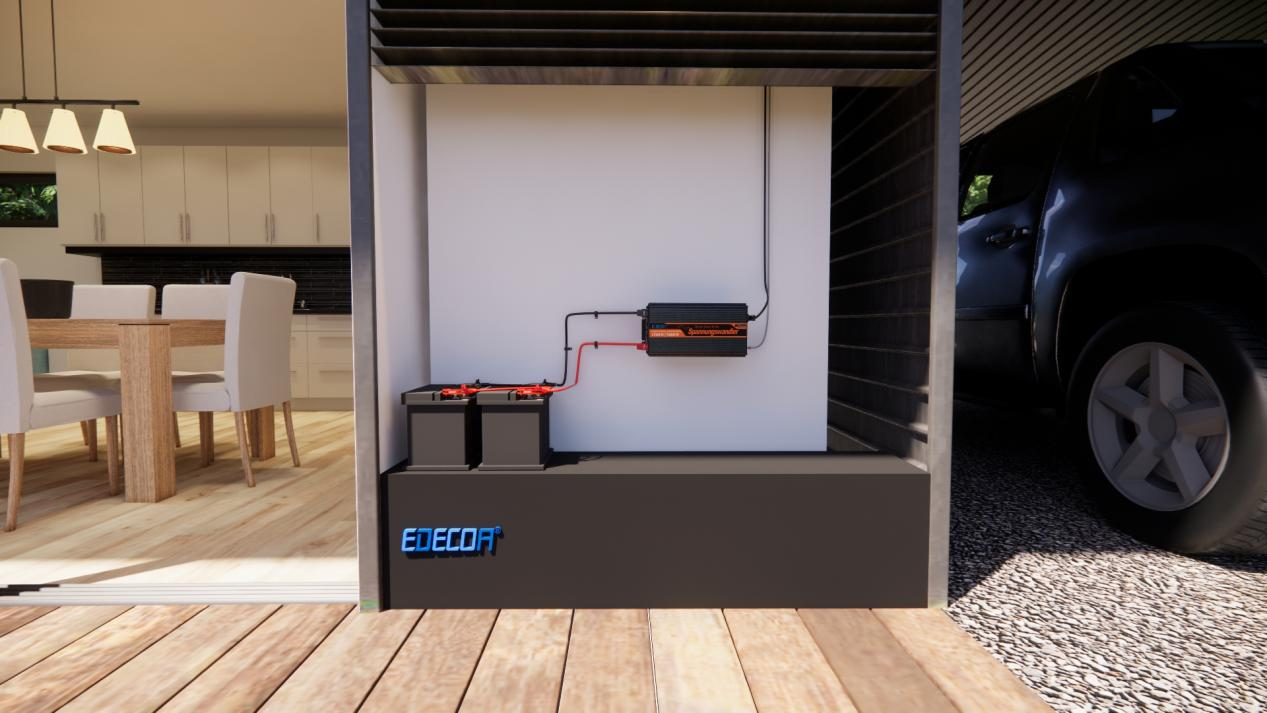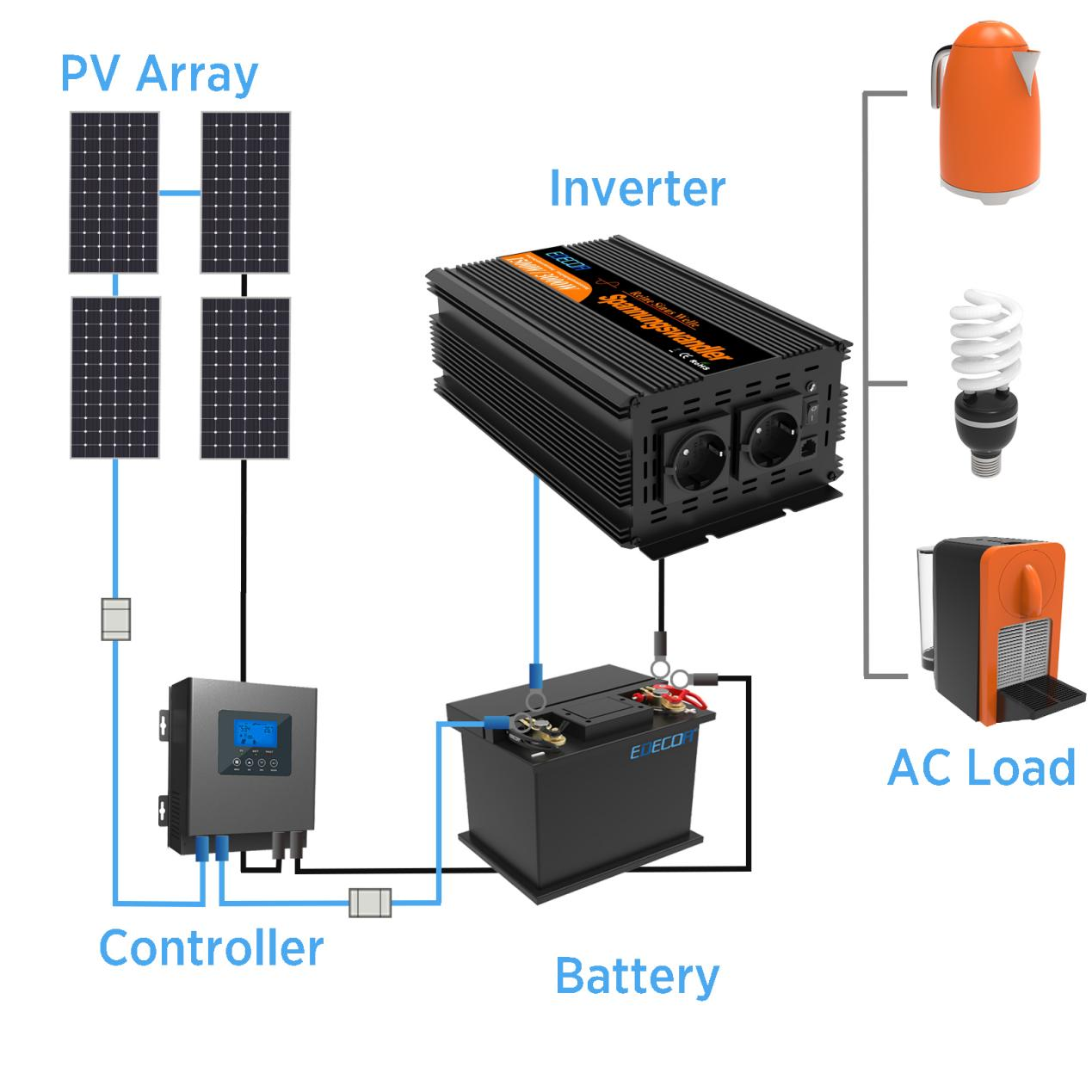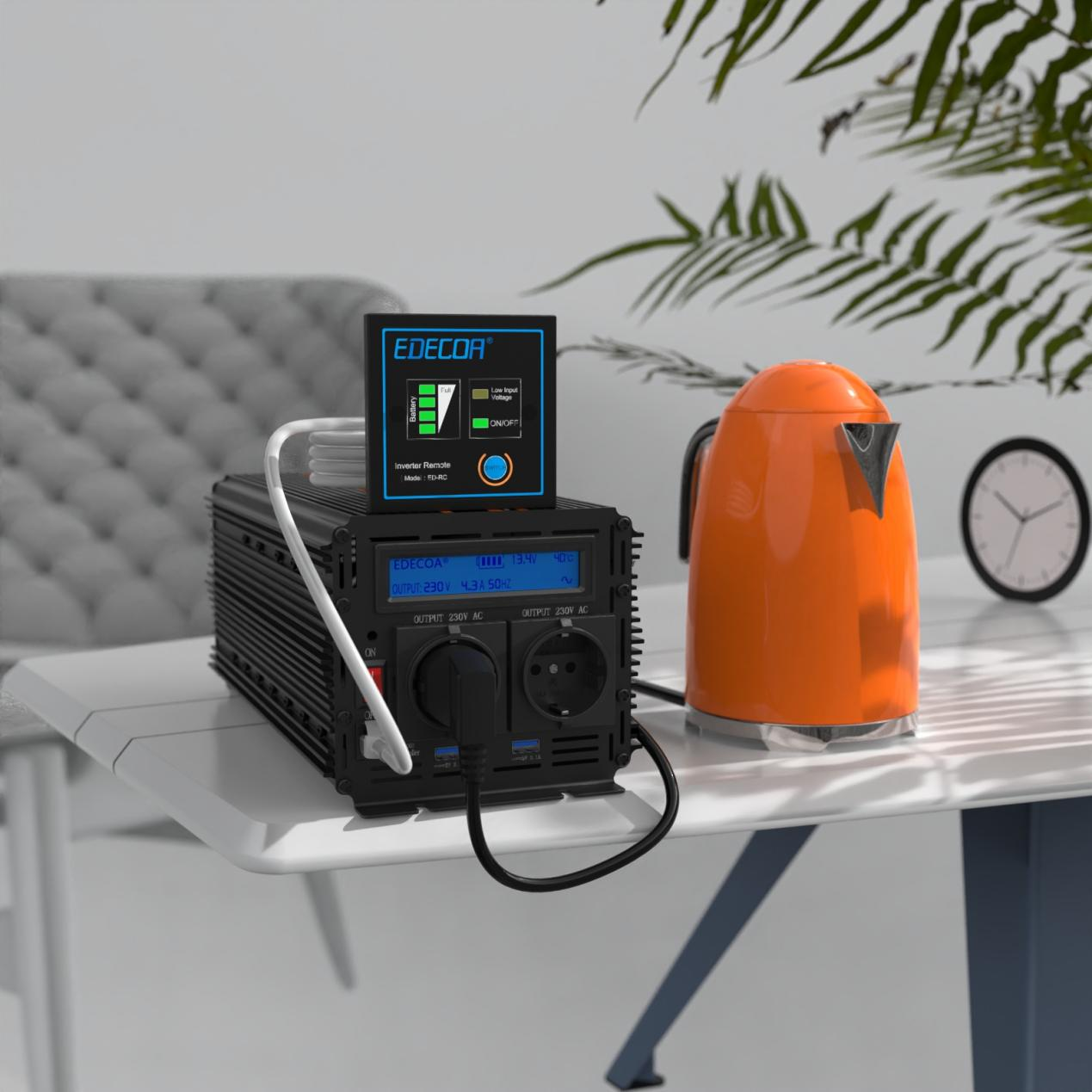EDECOA
Powes up all you need
My inverter continues to make noises, is there a problem with it?
Inverter is normal to have slight sound during normal operation. However, when it continuously produces unbearable abnormal noises, there may be issues in certain aspects.

Why does the inverter produce continuous sound?
Overload: When the inverter operates with excessive load, its internal components may experience large current impact, resulting in vibration and noise.
Low or high voltage: If the output voltage of the inverter is below or above the rated range, it may cause component vibration and sound.
Poor contact or loose components: Loose or poor contact of internal components such as internal connection wires and screws in the inverter may cause resonance or vibration, resulting in noise. Additionally, using cables that are too thin or too thick to connect the inverter may cause excessive or insufficient current, leading to internal component vibration and noise.
Fan failure: Inverters are usually equipped with fans for heat dissipation. When the internal temperature reaches 45℃, the fan starts to operate and generally does not produce loud noise. However, if there is a failure in the internal parts of the fan, it will continue to operate and produce louder noise.
Damage to internal components of the inverter: If internal components (such as capacitors, inductors, etc.) of the inverter are damaged or aged, it may cause abnormal vibration and noise.

Solutions:
Check load condition: Ensure that the load on the inverter does not exceed its rated capacity to avoid overload operation.
Adjust output voltage: Adjust the output voltage of the inverter according to needs to keep it within a reasonable range and avoid generating vibration and noise.
Check connections and fastenings: Regularly check whether internal connections and screws of the inverter are properly fastened, ensuring no looseness or poor contact.
Optimize heat dissipation: Ensure that the inverter has sufficient heat dissipation capability; consider adding heat sinks. Ensure good ventilation around the inverter by placing it in a well-ventilated location, away from obstacles or enclosed spaces.
Regular maintenance and inspection: Regularly clean and inspect the inverter and its internal components to ensure normal operation and reduce noise caused by aging or damaged parts.
Contact us: When the inverter encounters problems, you can contact our customer service team. We have professional engineers to assist you, accurately diagnose the issues, and provide appropriate solutions.

Post time: 01-11-2024